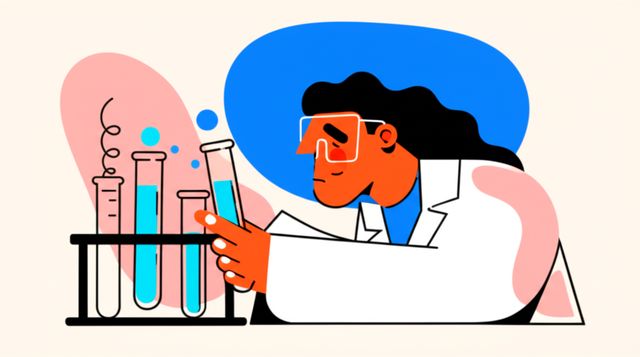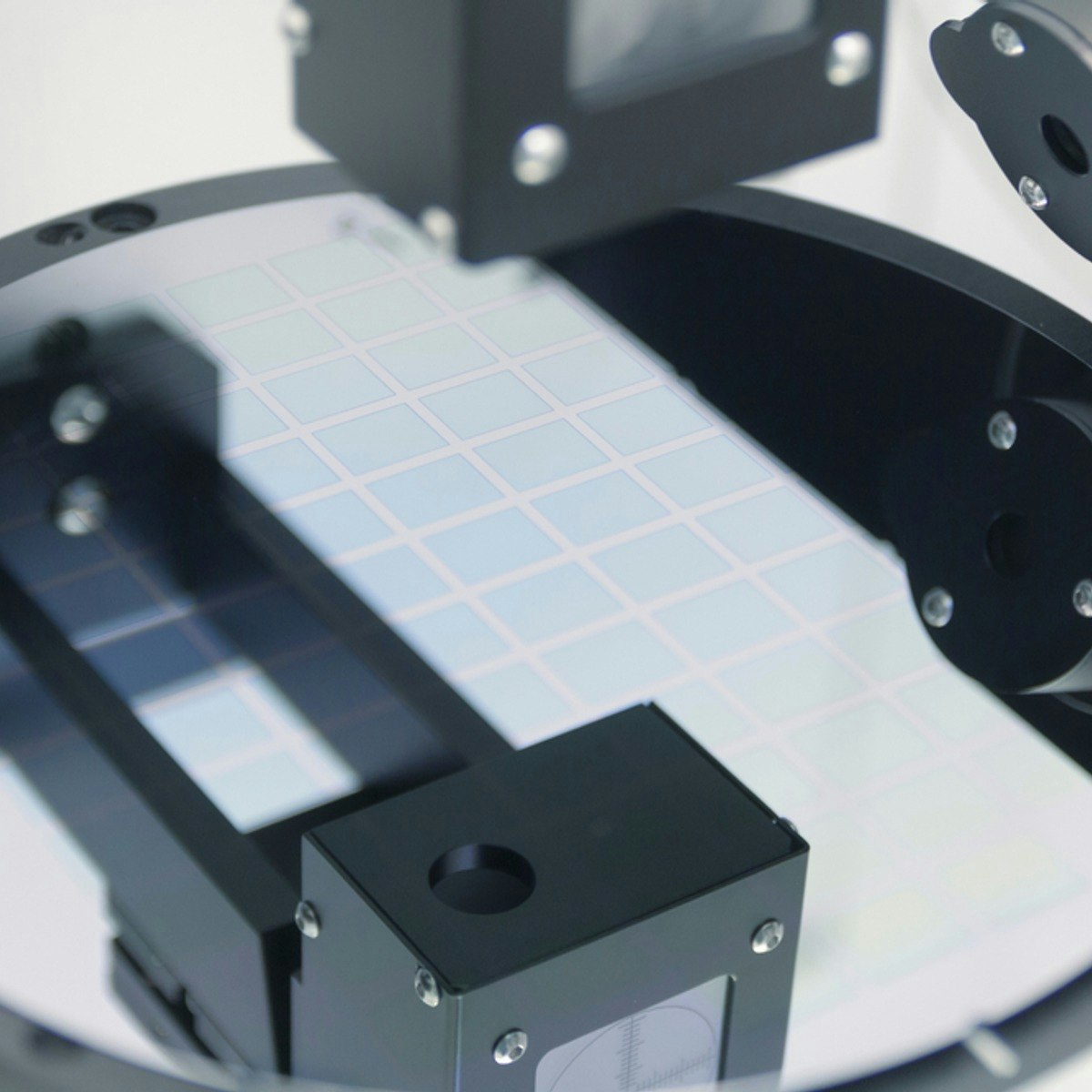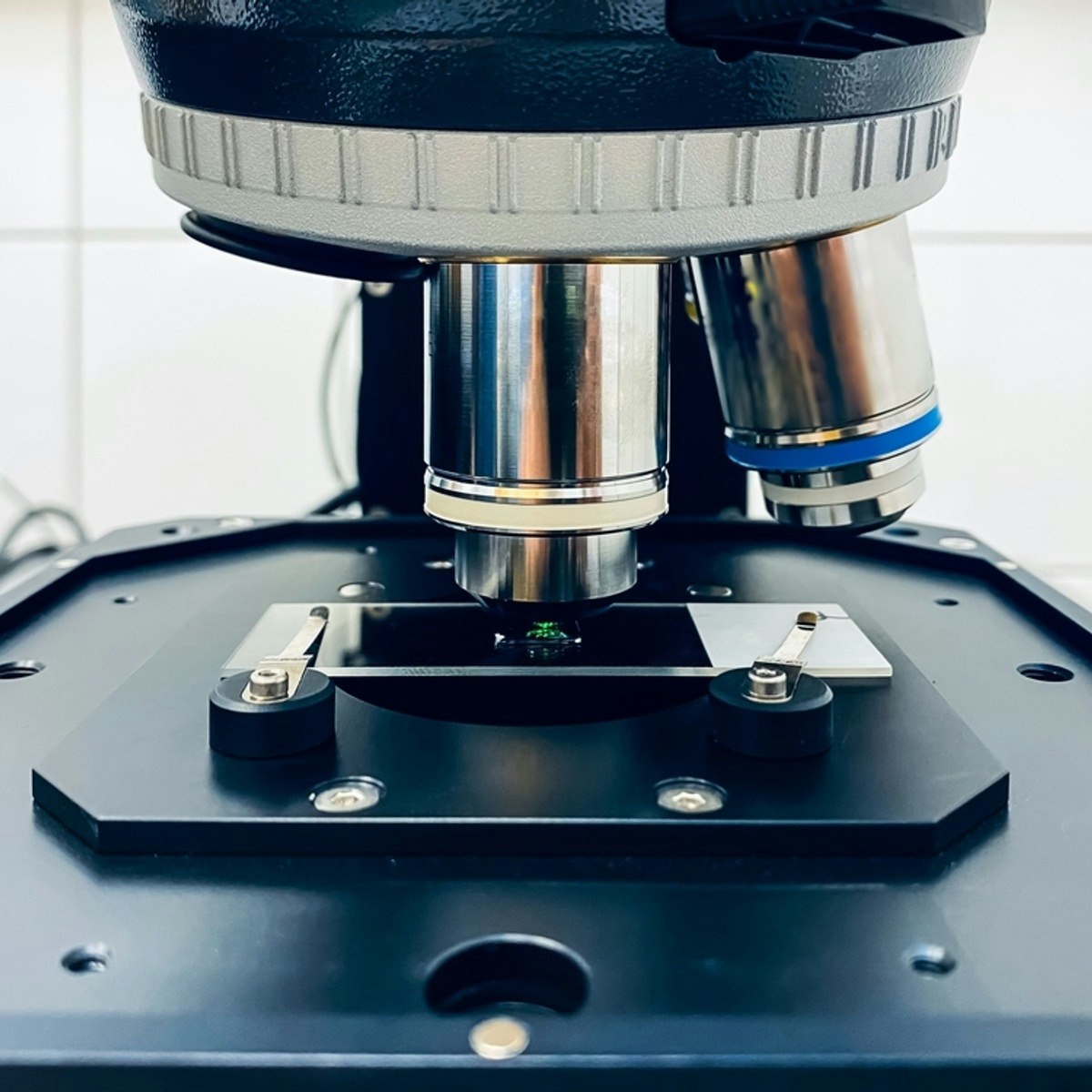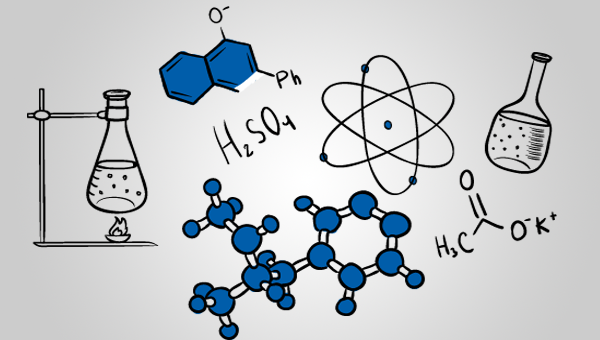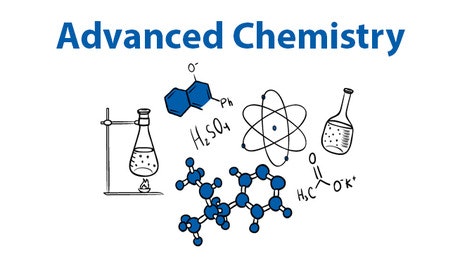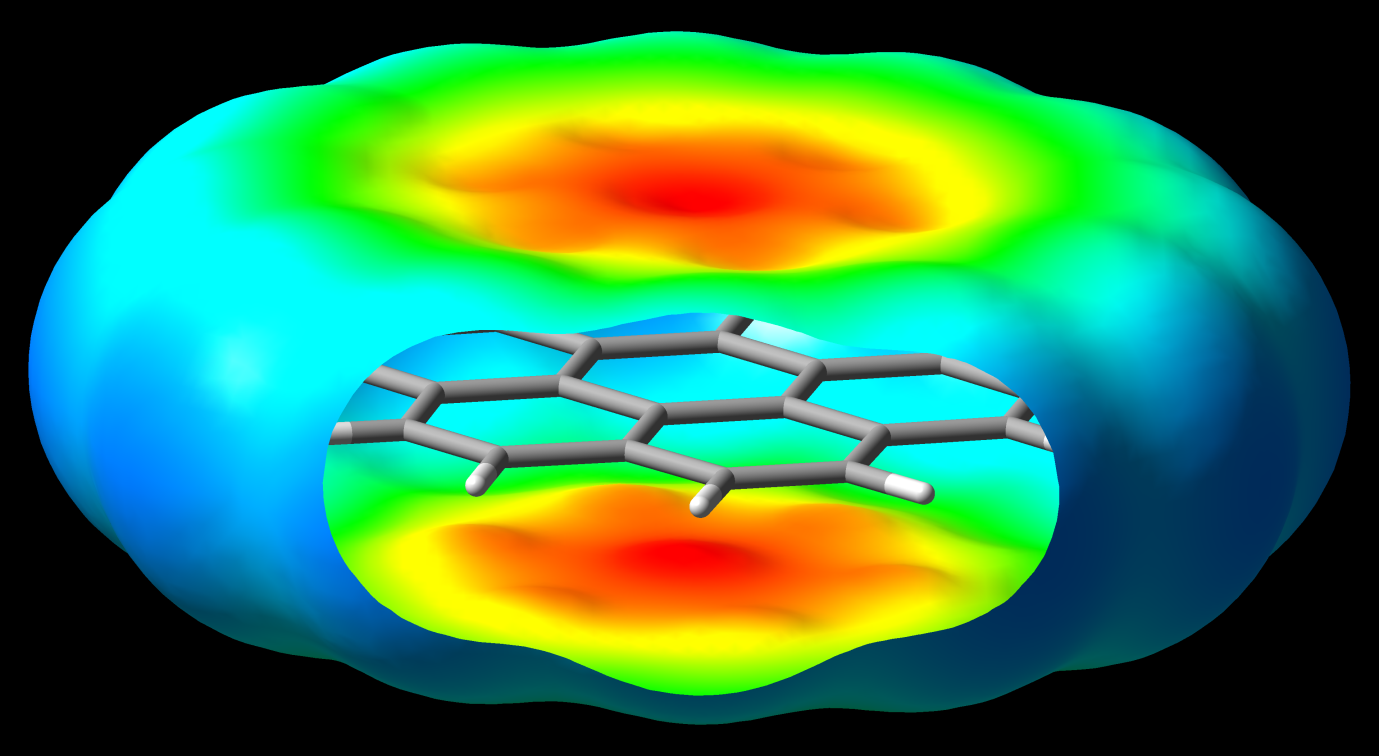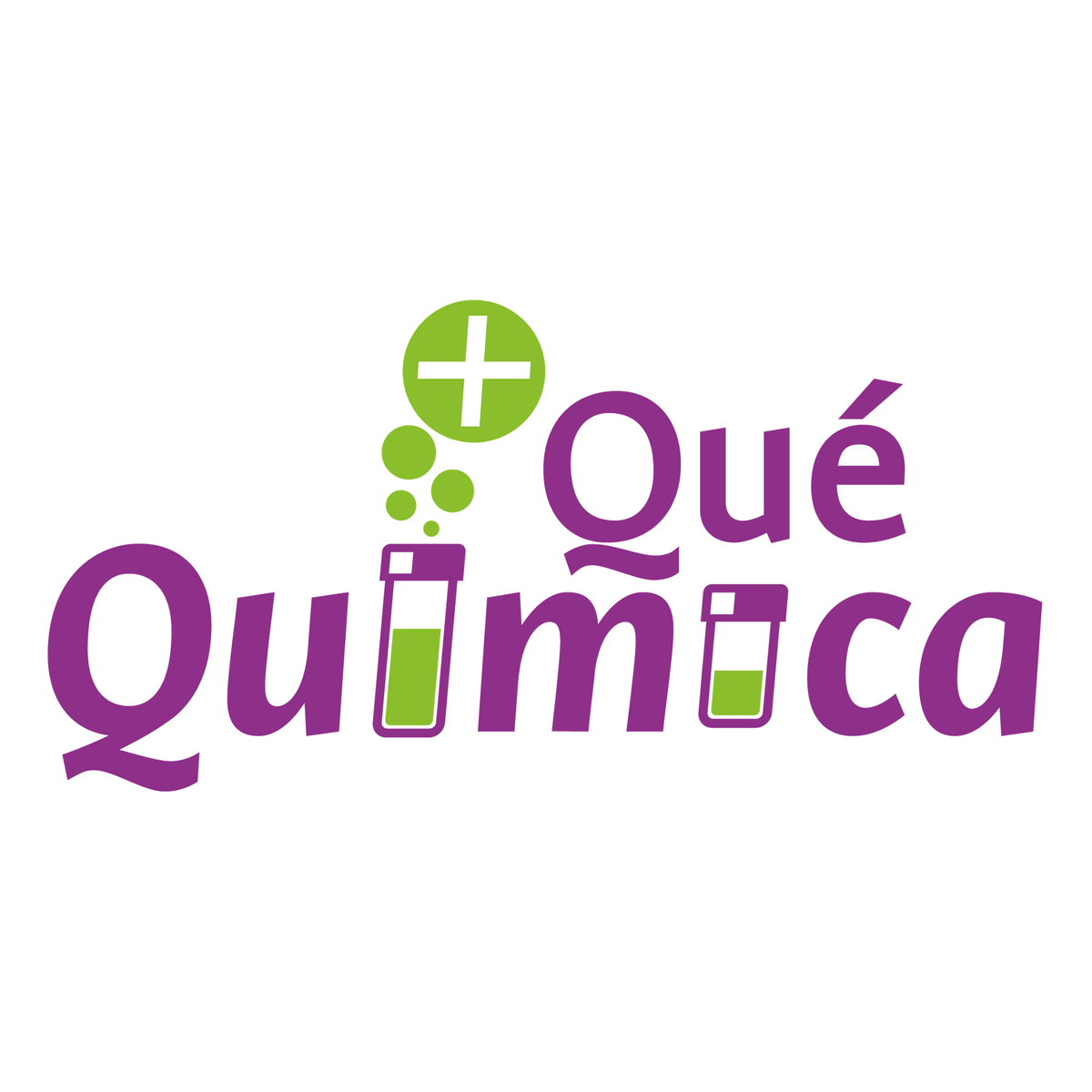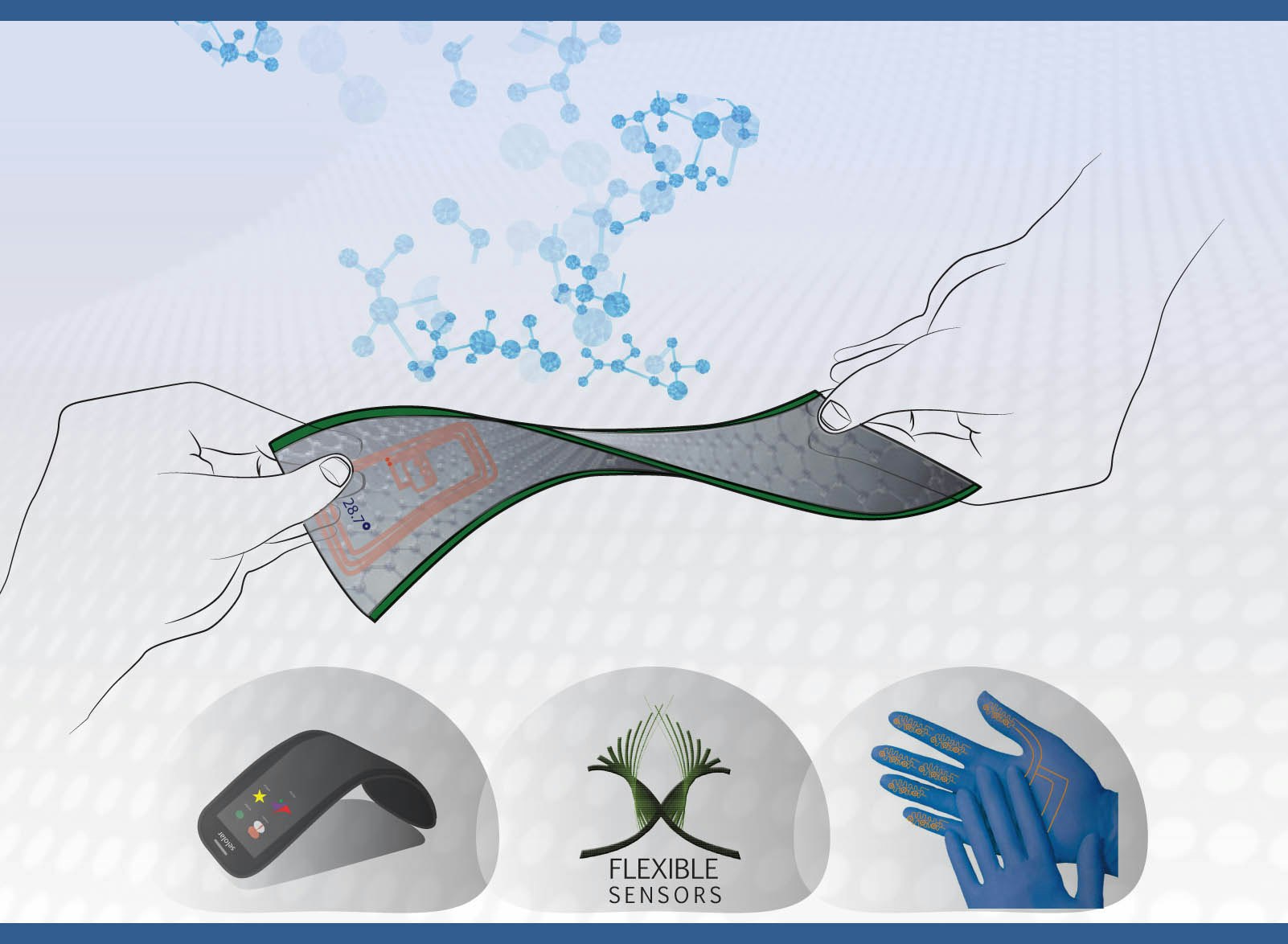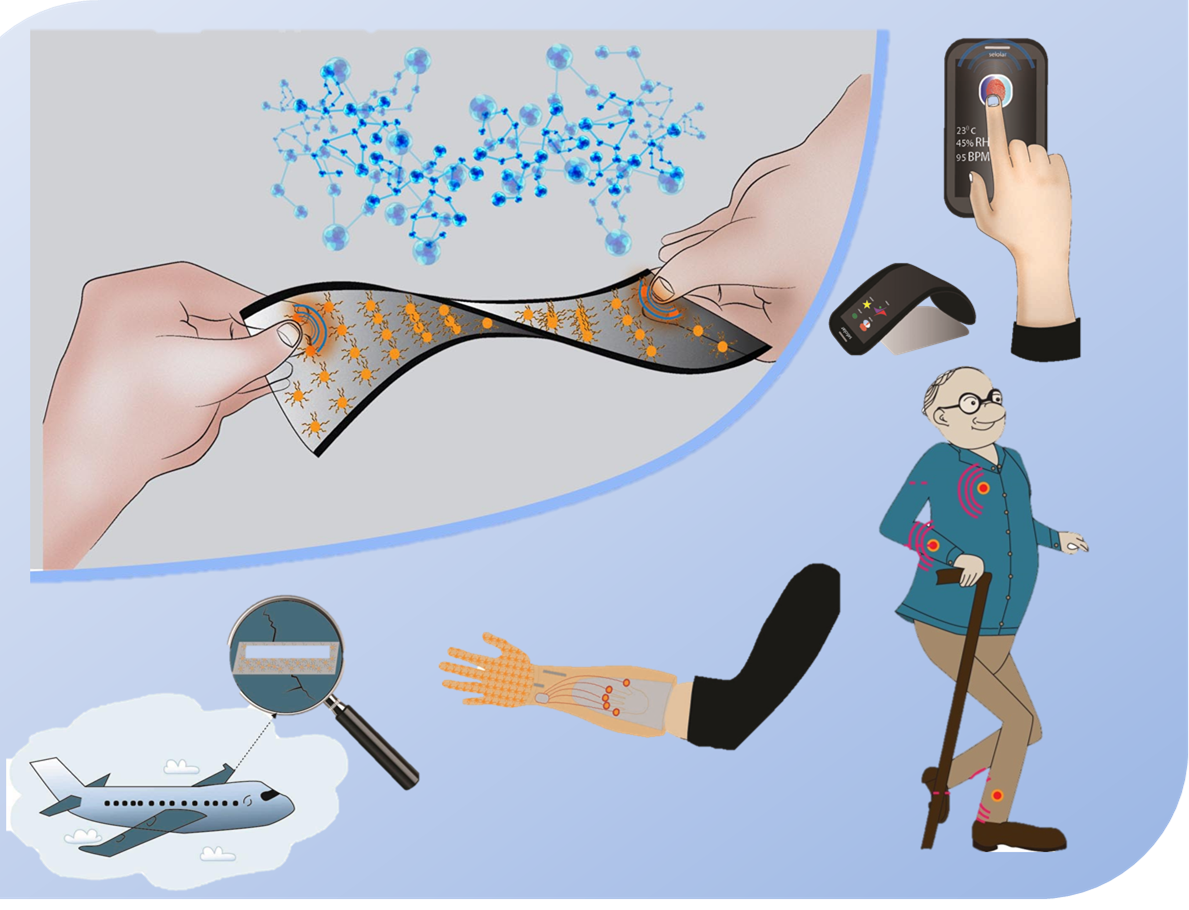Analytical Chemist
Analytical Chemist: A Comprehensive Career Guide
Analytical chemistry is the science of obtaining, processing, and communicating information about the composition and structure of matter. In essence, analytical chemists identify what substances are present (qualitative analysis) and how much of each substance is present (quantitative analysis). They are the detectives of the chemical world, using sophisticated tools and techniques to measure and interpret the chemical makeup of everything around us.
Working as an analytical chemist can be incredibly engaging. Imagine developing a method to detect trace contaminants in drinking water, ensuring public safety. Picture yourself analyzing the components of a new pharmaceutical drug to confirm its purity and efficacy. Or perhaps you'd find excitement in using advanced instrumentation to uncover the chemical secrets hidden within materials, contributing to advancements in fields from forensics to food science.
Understanding the Role of an Analytical Chemist
Analytical chemistry plays a crucial role across a vast spectrum of scientific endeavors and industrial applications. It provides the methods and tools necessary to characterize materials and understand chemical processes, underpinning research, development, and quality control in countless fields.
Defining Analytical Chemistry
At its core, analytical chemistry focuses on separation, identification, and quantification of chemical components in natural and artificial materials. It involves applying a wide range of techniques, from classical wet chemistry methods like titration to modern instrumental techniques like spectroscopy and chromatography. The goal is to answer fundamental questions: What is this substance made of? How much of a specific component does it contain? Is it pure?
This field bridges the gap between fundamental chemical knowledge and practical application. Analytical chemists develop new measurement techniques, refine existing ones, and apply these methods to solve real-world problems. Their work ensures the safety of food and drugs, monitors environmental pollution, helps diagnose diseases, and drives innovation in materials science and manufacturing.
The insights provided by analytical chemists are indispensable. Without accurate chemical measurements, quality control in manufacturing would be impossible, environmental regulations could not be enforced, and clinical diagnoses might be inaccurate. It's a field that demands precision, problem-solving skills, and a deep understanding of chemical principles.
These foundational courses provide a solid introduction to the core concepts and techniques used in analytical chemistry, suitable for those starting their journey.
A Brief History
While chemical analysis has been practiced for centuries, analytical chemistry emerged as a distinct discipline in the late 18th and 19th centuries. Early work focused on gravimetric analysis (measuring mass) and titrimetric analysis (measuring volume). Figures like Antoine Lavoisier laid groundwork with quantitative experiments, while chemists like Carl Remigius Fresenius systemized analytical methods through influential textbooks.
The 20th century saw a revolution driven by the development of instrumental methods. Techniques like UV-Vis spectroscopy, infrared spectroscopy, nuclear magnetic resonance (NMR), mass spectrometry (MS), and various forms of chromatography transformed the field. These tools allowed for faster, more sensitive, and more specific analyses, opening up new areas of investigation.
Today, analytical chemistry continues to evolve rapidly. Advances in instrumentation, automation, miniaturization, and data analysis techniques constantly push the boundaries of what can be measured. The field is increasingly interdisciplinary, intersecting with biology, materials science, environmental science, medicine, and engineering.
Industries Employing Analytical Chemists
Analytical chemists are sought after in a wide array of sectors due to the universal need for chemical measurement and analysis. The pharmaceutical industry relies heavily on them for drug discovery, development, quality control, and ensuring compliance with regulatory standards. They analyze raw materials, intermediate products, and final drug formulations.
Environmental science is another major area. Analytical chemists monitor air, water, and soil quality, identify pollutants, and assess the impact of human activities on ecosystems. Their work informs environmental policy and remediation efforts. Government agencies, environmental consulting firms, and research institutions all employ analytical chemists in this capacity.
Other significant industries include food and beverage (quality assurance, nutritional analysis, contaminant detection), chemical manufacturing (process monitoring, product quality), forensics (analyzing evidence), materials science (characterizing new materials), biotechnology (analyzing biomolecules), and clinical diagnostics (developing and running medical tests). The skills of an analytical chemist are broadly applicable, offering diverse career options.
Key Responsibilities of an Analytical Chemist
The day-to-day work of an analytical chemist involves a blend of laboratory procedures, data interpretation, and communication. It requires meticulous attention to detail, strong problem-solving abilities, and the capacity to work effectively both independently and as part of a team.
Daily Tasks and Workflow
A typical day often begins with receiving samples that require analysis. The first crucial step is sample preparation, which might involve dissolving, extracting, filtering, or concentrating the analyte of interest. Proper sample preparation is critical to ensure accurate and reliable results; errors at this stage can invalidate the entire analysis.
Following preparation, the chemist operates sophisticated analytical instruments, such as High-Performance Liquid Chromatographs (HPLC), Gas Chromatographs (GC), Mass Spectrometers (MS), or Spectrophotometers. This involves setting up the instrument, calibrating it, running standards and samples, and troubleshooting any issues that arise during operation.
Once the instrument generates data (e.g., chromatograms, spectra), the analytical chemist performs data analysis. This involves interpreting the raw data, performing calculations, comparing results against specifications or standards, and drawing conclusions. They must meticulously document all procedures, observations, and results in laboratory notebooks or electronic systems.
This course offers specific training on HPLC, a very common technique in analytical labs.
Quality Control and Regulatory Compliance
In many industries, particularly pharmaceuticals, food, and environmental testing, analytical chemists play a vital role in quality control (QC) and ensuring regulatory compliance. They perform routine testing on raw materials, in-process samples, and finished products to verify they meet predetermined quality standards and specifications.
This work often involves following standardized operating procedures (SOPs) and adhering to strict guidelines set by regulatory bodies like the Food and Drug Administration (FDA) or the Environmental Protection Agency (EPA). Maintaining accurate and complete documentation is paramount, as these records are subject to audits.
Analytical chemists may also be involved in method validation – demonstrating that an analytical procedure is suitable for its intended purpose – and stability testing, assessing how product quality changes over time under various conditions. Ensuring data integrity and adherence to Good Laboratory Practices (GLP) or Good Manufacturing Practices (GMP) is fundamental.
This course explores compliance testing in the specific context of the cannabis industry.
Collaboration and Communication
Analytical chemistry is rarely performed in isolation. Chemists often work closely with colleagues from other disciplines, such as organic chemists, biologists, engineers, or process scientists. They might collaborate on research projects, troubleshoot manufacturing issues, or contribute analytical expertise to product development teams.
Effective communication skills are essential. Analytical chemists must be able to clearly explain complex technical information and the implications of their findings to colleagues, managers, or clients who may not have a chemistry background. This often involves writing detailed reports, presenting data, and participating in team meetings.
Problem-solving frequently requires a team effort. When unexpected results occur or analytical challenges arise, chemists collaborate to identify the root cause and develop solutions. This interdisciplinary interaction is a key aspect of the role in many industrial and research settings.
Core Analytical Techniques and Tools
A diverse arsenal of techniques and instruments allows analytical chemists to probe the chemical world. Mastery of these tools is central to the profession, enabling the separation, identification, and quantification of substances with remarkable precision and sensitivity.
Chromatography and Spectroscopy
Chromatography techniques separate components of a mixture based on their differential interactions with a stationary phase and a mobile phase. High-Performance Liquid Chromatography (HPLC) and Gas Chromatography (GC) are workhorses in many analytical labs, used for separating complex mixtures in fields ranging from pharmaceuticals to environmental analysis.
Spectroscopy involves the interaction of electromagnetic radiation with matter to gain information about its structure and composition. Mass Spectrometry (MS) identifies substances by measuring the mass-to-charge ratio of their ions. Nuclear Magnetic Resonance (NMR) spectroscopy provides detailed information about molecular structure. Other important spectroscopic techniques include Ultraviolet-Visible (UV-Vis) and Infrared (IR) spectroscopy.
Often, these techniques are coupled, such as GC-MS or LC-MS, combining the separation power of chromatography with the identification capabilities of mass spectrometry. This provides highly specific and sensitive analysis of complex samples.
These courses delve into specific spectroscopic techniques widely used in analytical and organic chemistry.
These books provide in-depth knowledge on key analytical techniques.
Electrochemical Methods and Microscopy
Electrochemical methods measure electrical properties like potential (voltage) or current to determine the concentration of an analyte. Techniques like potentiometry (used in pH meters), voltammetry, and conductometry find applications in various areas, including environmental monitoring and clinical diagnostics.
Microscopy techniques provide visual information about materials at a microscopic or even nanoscopic level. While traditionally associated more with materials science or biology, techniques like Scanning Electron Microscopy (SEM) and Transmission Electron Microscopy (TEM), often coupled with analytical methods like Energy-Dispersive X-ray Spectroscopy (EDS), are used by analytical chemists to characterize surfaces and analyze the elemental composition of small features.
Atomic Force Microscopy (AFM) provides topographical information at the nanoscale. These advanced imaging and analysis techniques complement traditional chemical measurements by providing spatial information about sample composition and structure.
These courses cover characterization techniques involving X-rays and electron/ion beams.
This authoritative book covers a wide range of electrochemical techniques.
Software and Data Interpretation
Modern analytical instruments generate vast amounts of data. Consequently, proficiency in using specialized software for instrument control, data acquisition, processing, and interpretation is crucial. Chemists use software to analyze chromatograms, interpret spectra, perform statistical analysis, and manage large datasets.
Beyond instrument-specific software, knowledge of data analysis tools, spreadsheets (like Excel), and sometimes statistical software packages or even basic programming skills (e.g., in Python) can be highly advantageous. The ability to effectively manage, visualize, and interpret data is as important as the ability to generate it.
Chemists must critically evaluate the quality of the data, identify potential sources of error, and ensure the results are statistically sound. Reporting findings clearly and concisely, often using data visualization, is also a key skill facilitated by various software tools.
Formal Education Pathways
A strong foundation in chemistry is essential for a career as an analytical chemist. Formal education provides the theoretical knowledge and practical laboratory skills required for success in this field. Different educational levels open doors to various roles and career trajectories.
Undergraduate Degree Requirements
A bachelor's degree in chemistry is the typical minimum requirement for entry-level positions such as laboratory technician or quality control analyst. Programs accredited by the American Chemical Society (ACS) often provide a comprehensive curriculum covering general, organic, inorganic, physical, and analytical chemistry, along with mathematics and physics.
Coursework specifically in analytical chemistry, including lectures and laboratory components covering instrumental analysis (like HPLC, GC, spectroscopy) and classical methods (titration, gravimetry), is crucial. Strong laboratory skills, attention to detail, and experience with standard lab equipment are developed during undergraduate studies.
Some students may also enter the field with degrees in related disciplines like biochemistry, chemical engineering, or materials science, provided they have a strong analytical chemistry component in their coursework. Internships or co-op experiences in industrial or research labs during undergraduate studies are highly beneficial for gaining practical experience and making industry connections.
These courses cover fundamental and intermediate chemistry concepts relevant to undergraduate studies.
Graduate Programs and Specialization
A Master's degree (M.S.) in analytical chemistry or a related field can lead to more advanced roles with greater responsibility, such as method development, research support, or laboratory supervision. Master's programs typically involve more advanced coursework in specific analytical techniques, instrumentation, and data analysis, often culminating in a research project or thesis.
Specialization becomes more common at the graduate level. Students might focus on areas like separation science, mass spectrometry, spectroscopy, electrochemistry, bioanalytical chemistry, or environmental analysis. This deeper expertise makes graduates more competitive for specialized roles in industry or government labs.
A Master's degree can also be a stepping stone for those considering a Ph.D. or for individuals with a bachelor's degree looking to enhance their skills and career prospects without committing to a full doctoral program. It provides a balance between advanced theoretical knowledge and practical application.
Ph.D. Routes for Research Careers
A Doctor of Philosophy (Ph.D.) degree is generally required for independent research positions in academia, government research institutions, or industrial research and development (R&D). Ph.D. programs involve intensive, original research culminating in a dissertation, alongside advanced coursework.
Doctoral research pushes the boundaries of analytical science, focusing on developing novel analytical methods, designing new instrumentation, or applying advanced techniques to challenging scientific problems. Ph.D. graduates are equipped to lead research teams, manage analytical laboratories, and contribute significantly to scientific innovation.
While demanding, a Ph.D. opens doors to the highest levels of research and leadership within the field. It signifies expertise in a specific area of analytical chemistry and the ability to conduct independent, high-level scientific investigation. Postdoctoral research positions are often pursued after obtaining a Ph.D. to gain further specialized experience before seeking permanent research roles.
These more advanced courses explore specific areas like molecular structure determination and physical chemistry principles.
Online and Independent Learning
Beyond formal degree programs, online courses and independent study offer valuable avenues for learning analytical chemistry concepts, supplementing traditional education, or facilitating a career pivot. Platforms like OpenCourser aggregate resources, making it easier to find relevant materials.
Foundational Topics for Self-Study
Individuals new to the field or seeking a refresher can start with foundational chemistry principles online. Topics like general chemistry (atomic structure, bonding, stoichiometry, solutions), basic organic chemistry (functional groups, nomenclature), and introductory analytical concepts (units, concentrations, statistics, equilibrium) form the bedrock.
More specific analytical topics suitable for self-study include the principles behind core techniques like spectroscopy (UV-Vis, IR, basic NMR), chromatography (fundamentals of separation), and electrochemistry (basic principles). Understanding the theory behind these methods is crucial before delving into complex instrumentation.
Many online platforms offer courses covering these fundamentals, often taught by university instructors. While they may not replace hands-on lab experience, they provide accessible and flexible ways to build theoretical knowledge at your own pace. Searching Science categories on OpenCourser can reveal numerous options.
These courses cover foundational chemistry, suitable for independent learners building a base.
Project-Based Learning Opportunities
Applying theoretical knowledge through projects is an effective way to solidify understanding. While replicating complex lab experiments at home is difficult, learners can focus on data analysis projects. Publicly available datasets (e.g., spectral libraries, environmental monitoring data) can be used to practice data interpretation, statistical analysis, and visualization skills.
One could simulate method validation by analyzing provided datasets or explore chemometrics (applying statistical and mathematical methods to chemical data). Some online courses incorporate virtual labs or simulations that offer interactive learning experiences related to experimental procedures and data acquisition, bridging the gap between theory and practice.
Contributing to open-source scientific software projects related to data analysis or simulation can also be a valuable learning experience. Engaging with online communities and forums dedicated to chemistry allows learners to ask questions, discuss concepts, and collaborate on small projects.
Supplementing Formal Education
Online resources are excellent tools for students enrolled in formal degree programs. They can be used to reinforce concepts learned in lectures, explore topics in greater depth, or gain exposure to specialized techniques not covered extensively in their curriculum. Platforms often feature courses from different institutions, offering diverse perspectives.
If a particular concept is challenging, finding an online course or tutorial explaining it differently can be very helpful. Online courses focusing on specific instrumentation (like NMR or MS) or software used in analytical labs can supplement practical lab sessions and provide valuable skills sought by employers.
Working professionals can use online learning for continuing education, staying updated on new techniques and technologies, or acquiring skills for career advancement (e.g., learning about quality management systems or specific regulatory guidelines). OpenCourser's Learner's Guide offers tips on structuring self-learning effectively.
Career Progression for Analytical Chemists
A career in analytical chemistry offers various paths for growth and specialization. Advancement typically depends on education, experience, demonstrated skills, and professional development.
Entry-Level Roles
With a bachelor's degree, typical entry-level positions include Lab Technician, Quality Control (QC) Analyst, or Associate Chemist. These roles often involve performing routine analyses under supervision, operating standard laboratory equipment, preparing samples, and documenting results according to established procedures (SOPs).
These positions provide essential hands-on experience with analytical techniques and instrumentation within a specific industry context (e.g., pharmaceutical QC, environmental testing). Early-career professionals focus on mastering laboratory techniques, understanding quality systems, and developing good documentation practices.
Strong performance, attention to detail, and a willingness to learn are key at this stage. Building a solid foundation in practical skills and understanding the regulatory environment specific to the industry are crucial for future advancement.
Mid-Career Paths: Specialization vs. Management
After gaining several years of experience, analytical chemists often face a choice between deepening their technical expertise or moving towards management. Those pursuing specialization might become experts in a particular technique (e.g., Mass Spectrometry Specialist, Chromatography Expert) or application area (e.g., Bioanalytical Scientist).
These roles involve more complex tasks like method development, validation, troubleshooting challenging analytical problems, interpreting complex data, and potentially training junior staff. A Master's degree or significant experience is often beneficial for these specialized technical roles.
Alternatively, chemists with strong leadership and organizational skills may move into supervisory or management roles. This could involve leading a team of analysts, managing laboratory operations, overseeing quality systems, or coordinating projects. This path requires developing skills in people management, budgeting, and strategic planning, often supplemented by management training.
Senior Positions and Leadership
With extensive experience and often advanced degrees (Ph.D. for research leadership), analytical chemists can reach senior technical or managerial positions. Senior Scientists or Principal Scientists typically lead research projects, drive innovation in analytical methods, and serve as key technical experts within an organization.
Senior management roles might include Laboratory Director, Head of Quality Assurance, or R&D Manager. These positions involve setting strategic direction, managing large teams or departments, ensuring regulatory compliance at a high level, and interacting with senior leadership across the organization.
Some experienced analytical chemists also move into related fields like regulatory affairs (interacting with agencies like the FDA), technical sales or support (working for instrument manufacturers), or scientific consulting. A strong analytical background provides a versatile foundation for various high-level career paths.
Industry Applications and Market Trends
The demand for analytical chemistry skills is influenced by trends in key industries and broader technological advancements. Staying aware of these dynamics is important for career planning.
Pharmaceutical and Biotechnology Demand
The pharmaceutical and biotechnology sectors remain major employers of analytical chemists. The continuous development of new drugs, including complex biologics, requires sophisticated analytical methods for characterization, formulation development, stability testing, and quality control. Stringent regulatory requirements further drive the need for rigorous analytical testing.
Post-pandemic, there's continued emphasis on vaccine development, antiviral therapies, and diagnostic testing, all areas heavily reliant on analytical expertise. The growth of personalized medicine and biopharmaceuticals also creates demand for advanced techniques capable of analyzing complex biological molecules and systems.
Research suggests robust growth in pharmaceutical analytical testing markets. According to a report by Grand View Research, factors like increasing outsourcing of analytical testing and the growing complexity of drug molecules contribute to market expansion, indicating sustained demand for skilled chemists.
Environmental Monitoring and Green Chemistry
Growing concerns about environmental pollution, climate change, and resource sustainability fuel demand for analytical chemists in environmental monitoring and analysis. Chemists are needed to detect and quantify pollutants in air, water, and soil, assess environmental risks, and ensure compliance with regulations.
The push towards "green chemistry" – designing chemical products and processes that reduce or eliminate the use of hazardous substances – also involves analytical chemistry. Chemists help develop and implement greener analytical methods that minimize waste and use less toxic solvents, contributing to more sustainable laboratory practices.
Regulations regarding contaminants like PFAS (per- and polyfluoroalkyl substances) and microplastics continue to evolve, requiring sensitive and specific analytical methods for detection and monitoring. This creates ongoing opportunities in environmental testing labs, government agencies, and consulting firms.
These books delve into environmental analysis and sustainable chemistry practices.
Impact of Automation and Data Science
Automation is increasingly impacting analytical laboratories. Robotic systems for sample handling and preparation, automated analytical instruments, and Laboratory Information Management Systems (LIMS) streamline workflows and increase throughput. While this may automate some routine tasks, it also creates a need for chemists skilled in operating, maintaining, and troubleshooting automated systems.
The large datasets generated by modern instruments are driving the integration of data science principles. Skills in data analysis, statistics, chemometrics, and potentially machine learning are becoming more valuable for extracting meaningful insights from complex analytical data. Analytical chemists who can combine domain expertise with data handling skills are highly sought after.
Rather than replacing chemists, automation and data science are changing the skill set required. The focus shifts from manual execution of routine tasks towards method development, complex problem-solving, data interpretation, and managing sophisticated automated systems. According to the U.S. Bureau of Labor Statistics, overall employment for chemists is projected to grow, suggesting continued opportunities despite automation.
Ethical and Safety Considerations
Working as an analytical chemist involves responsibilities related to safety, data integrity, and environmental consciousness. Adherence to ethical principles and safety protocols is non-negotiable.
Handling Hazardous Materials
Analytical laboratories routinely handle a variety of chemicals, some of which may be toxic, flammable, corrosive, or reactive. Proper training in chemical safety, understanding Safety Data Sheets (SDS), and consistent use of personal protective equipment (PPE) like gloves, safety glasses, and lab coats are essential.
Chemists must follow established procedures for safe storage, handling, and disposal of chemicals to protect themselves, their colleagues, and the environment. Fume hoods and other engineering controls are used to minimize exposure to hazardous vapors. Emergency preparedness, including knowledge of spill cleanup procedures and first aid, is also critical.
Ongoing safety training and maintaining a strong safety culture within the laboratory are paramount. Negligence in handling hazardous materials can lead to serious accidents or long-term health issues.
Data Integrity and Reporting
Accuracy and honesty in recording and reporting data are fundamental ethical obligations. Analytical results often form the basis for critical decisions regarding product quality, environmental safety, or clinical diagnoses. Falsifying or manipulating data is a serious breach of scientific and professional ethics with potentially severe consequences.
Maintaining meticulous records, following validated methods, properly calibrating instruments, and documenting any deviations or unexpected events are crucial for ensuring data integrity. In regulated industries (like pharmaceuticals), data integrity requirements are particularly stringent and subject to audits by regulatory agencies.
Chemists must report results objectively, even if they are unfavorable or unexpected. Transparency about methods, limitations, and uncertainties associated with the analysis is also important for proper interpretation of the data by others.
Environmental Impact
Analytical procedures themselves can have an environmental footprint through the consumption of solvents, reagents, and energy, and the generation of chemical waste. Analytical chemists have a role to play in minimizing this impact.
This involves exploring and adopting principles of Green Analytical Chemistry (GAC). Strategies include reducing sample size (miniaturization), decreasing solvent and reagent consumption, using less toxic alternatives, improving energy efficiency of instruments, and implementing proper waste management and recycling programs.
Choosing analytical methods that are more environmentally benign, when feasible without compromising analytical performance, is an important consideration. Awareness of the lifecycle impact of analytical processes encourages more sustainable laboratory practices.
Emerging Technologies in Analytical Chemistry
Analytical chemistry is a dynamic field, continuously evolving with the advent of new technologies. These advancements enhance sensitivity, speed, portability, and the scope of analytical measurements.
Miniaturization and Portable Devices
There is a significant trend towards developing smaller, more portable analytical instruments. Microfluidic devices, often called "lab-on-a-chip" systems, integrate multiple laboratory functions onto a single chip, enabling rapid analysis with minimal sample and reagent consumption. These systems find applications in point-of-care diagnostics, environmental field monitoring, and process control.
Miniaturized sensors and handheld spectrometers are also becoming more common, allowing for on-site analysis outside of traditional laboratory settings. This enables faster decision-making in areas like food safety inspection, environmental screening, and industrial process monitoring.
Developing and applying these miniaturized systems requires expertise in microfabrication, sensor technology, and data handling for portable devices, representing a growing area within analytical chemistry.
These courses touch upon nanotechnology and sensors, areas related to miniaturization trends.
AI and Machine Learning Applications
Artificial intelligence (AI) and machine learning (ML) are increasingly being applied to analyze the complex datasets generated by modern analytical instruments, particularly in spectroscopy and chromatography. ML algorithms can identify patterns, classify samples, predict properties, and even assist in optimizing experimental parameters.
In spectral analysis, for instance, ML can help deconvolve complex spectra, identify components in mixtures, and correlate spectral features with sample properties (e.g., disease state, product quality). In chromatography, AI can aid in peak detection, resolution enhancement, and automated method development.
Analytical chemists with skills in data science, programming, and machine learning will be well-positioned to leverage these powerful tools for extracting deeper insights from analytical data and automating complex interpretation tasks. This represents a significant shift towards more data-driven analytical science.
Advances in Sensitivity and Detection
Researchers are constantly pushing the limits of detection, striving to measure ever smaller quantities of substances. Techniques enabling single-molecule detection allow scientists to study individual molecular events, providing unprecedented insights into biological processes and materials science.
Advances in mass spectrometry continue to improve sensitivity and resolution, enabling the analysis of complex biological samples (proteomics, metabolomics) and trace contaminants at extremely low levels. Enhanced sensitivity in spectroscopic and electrochemical methods also broadens their applicability.
These improvements often rely on innovations in instrument design, detector technology, and sample preparation techniques (like Solid Phase Microextraction). Staying abreast of these cutting-edge developments is crucial for researchers and practitioners working at the forefront of analytical measurement.
This book focuses on a specific advanced sample preparation technique.
Frequently Asked Questions (FAQs)
Prospective and current analytical chemists often have practical questions about the career path, skills, and job market. Here are answers to some common queries.
What is the typical salary range?
Salaries for analytical chemists vary based on factors like education level (B.S., M.S., Ph.D.), years of experience, industry (pharmaceuticals often pay more than academia or government), geographic location, and specific job responsibilities. Entry-level positions with a bachelor's degree typically start lower, while experienced Ph.D. scientists in high-demand industries command significantly higher salaries.
According to the U.S. Bureau of Labor Statistics, the median annual wage for chemists (a category including analytical chemists) was $83,850 in May 2022. However, this is a broad median, and specific ranges can differ. Resources like salary surveys from the American Chemical Society (ACS) or data from recruitment firms like Robert Half can provide more granular, up-to-date information for specific roles and locations.
Generally, advancing education and gaining specialized experience in high-demand techniques (e.g., LC-MS, NMR) or industries tends to lead to higher earning potential over the course of a career.
What are the essential technical skills?
Core technical skills include proficiency in operating and troubleshooting key analytical instruments relevant to the specific role (e.g., HPLC, GC, MS, UV-Vis, IR, NMR). Strong hands-on laboratory skills, including accurate sample preparation, solution making, and adherence to safety protocols, are fundamental.
Data analysis and interpretation skills are crucial, including familiarity with instrument software, spreadsheets, and basic statistical concepts. Understanding method validation, quality control principles (GLP, GMP), and good documentation practices are essential, particularly in regulated industries.
"Nice-to-have" skills might include experience with more advanced or specialized techniques, LIMS software, automation systems, data science tools (Python, R), or specific regulatory knowledge depending on the industry.
Which industries have the highest demand?
Historically, the pharmaceutical and biotechnology industries are major employers with consistent demand due to ongoing drug development and strict quality control needs. The chemical manufacturing industry also requires analytical chemists for process monitoring and product quality.
Environmental testing and consulting firms see demand driven by regulations and environmental awareness. Food and beverage industries require chemists for quality assurance and safety testing. Government laboratories (FDA, EPA, forensics) also employ a significant number of analytical chemists.
Emerging areas like cannabis testing and advanced materials development also create new opportunities. Demand can fluctuate based on economic conditions and industry-specific trends, but the fundamental need for chemical analysis across diverse sectors generally provides a relatively stable job market.
How is automation impacting job prospects?
Automation is changing the nature of the work rather than eliminating jobs entirely. While routine, manual tasks may become less common, the need for chemists to develop methods, oversee automated systems, troubleshoot complex problems, and interpret the resulting data remains strong, and may even increase.
The emphasis shifts towards higher-level skills. Chemists who adapt by learning to work with automated platforms, manage large datasets, and focus on complex analytical challenges are likely to find continued demand for their expertise. Adaptability and a willingness to learn new technologies are key.
Job prospects remain positive for those with strong foundational knowledge combined with skills in modern instrumentation, data analysis, and potentially automation technology. The U.S. Bureau of Labor Statistics projects growth for chemists, suggesting automation complements rather than replaces the analytical chemist.
Are certifications valuable beyond degrees?
While formal degrees (B.S., M.S., Ph.D.) are the primary qualifications, specific certifications can sometimes enhance a resume, particularly for specialized roles or in certain industries. However, unlike fields such as project management or IT, there isn't a single, universally recognized certification that is essential for analytical chemists.
Certifications might exist for specific instrumentation techniques offered by vendors, or in quality management systems (like ASQ certifications). Professional licensure (e.g., for clinical chemists) may be required in certain specific roles. Generally, practical experience, demonstrated skills, and formal education carry more weight than certifications in most analytical chemistry roles.
Focusing on gaining hands-on experience, mastering core techniques, and potentially pursuing advanced degrees is usually the most effective path for career advancement in this field.
What are the opportunities for global mobility?
Analytical chemistry skills are universally applicable, and opportunities exist globally, particularly within multinational corporations (pharmaceutical, chemical, consumer goods) and international research institutions. Major hubs for these industries exist in North America, Europe, and parts of Asia.
Mobility often depends on the specific company or institution, visa requirements, and language skills. Experience with internationally recognized quality standards (like ISO or ICH guidelines) can be advantageous. Advanced degrees and specialized expertise (e.g., in high-demand techniques) can increase opportunities for international roles or collaborations.
Networking through international conferences and professional societies can also open doors to global opportunities. While specific requirements vary, a strong foundation in analytical chemistry provides a skill set recognized and valued worldwide.
Embarking on Your Analytical Chemistry Journey
Pursuing a career as an analytical chemist offers a path filled with intellectual challenges and the satisfaction of contributing to scientific understanding and technological progress across diverse industries. It requires a solid educational foundation, meticulous attention to detail, strong problem-solving skills, and a commitment to continuous learning in a constantly evolving field.
Whether you are a student exploring options, a professional considering a transition, or an early-career chemist mapping your future, the journey involves dedication. Embrace the challenges of mastering complex techniques and interpreting intricate data. Remember that online resources, like those aggregated on OpenCourser, can supplement your formal education and help you acquire new skills throughout your career.
The path may seem rigorous, and indeed, it demands precision and critical thinking. However, the rewards—solving complex puzzles, ensuring safety and quality, and contributing to innovation—are substantial. Be persistent, stay curious, and leverage the available resources to build the knowledge and skills needed for a successful and fulfilling career in the fascinating world of analytical chemistry.
Helpful Resources
To further explore analytical chemistry and related fields, consider these resources:
- American Chemical Society (ACS) - Analytical Chemistry Profile: Information on the field from the leading professional organization.
- U.S. Bureau of Labor Statistics - Chemists and Materials Scientists: Occupational outlook, salary data, and job descriptions.
- OpenCourser - Chemistry Courses: Browse a wide range of online courses in chemistry and related subjects.
- Analytical Chemistry (Journal): Leading peer-reviewed journal for research in the field (requires subscription for full access).
We hope this guide provides a comprehensive overview to help you evaluate whether a career as an analytical chemist aligns with your interests and aspirations. Good luck with your exploration!

